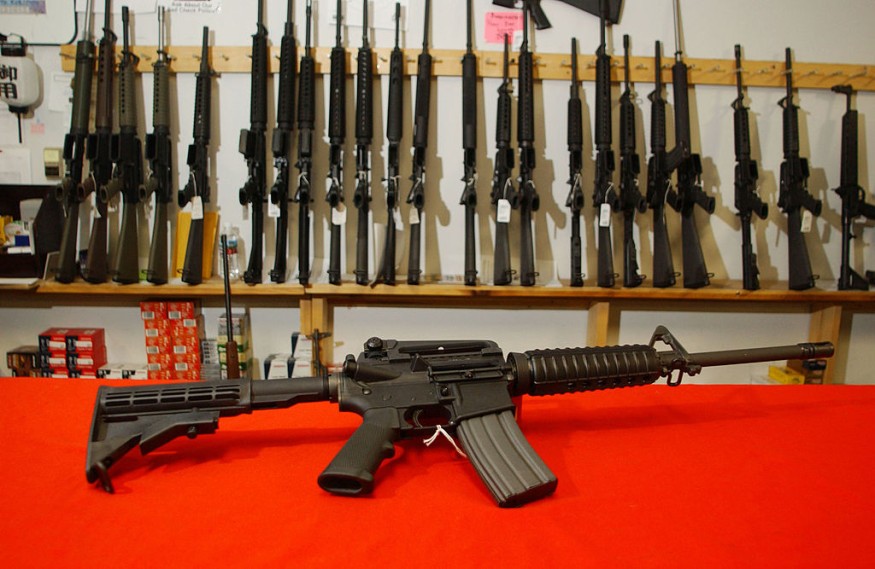Illinois Gun Ban Avoided by Supreme Court as Justice Clarence Thomas Seeks Further Clarity on Protected Weapons

The United States Supreme Court declined on Tuesday to review a challenge against Illinois' law prohibiting certain semi-automatic rifles and large-capacity magazines, solidifying the measure's status.
This decision marks the court's refusal to reconsider the US Court of Appeals for the 7th Circuit's preliminary affirmation of Illinois assault weapons ban, a law enacted in response to escalating gun violence incidents, according to CBS News.
The legal battle over the Illinois assault weapons ban has seen multiple attempts to reach the Supreme Court, with previous emergency appeals failing to halt the law's enforcement pending judicial review.
The latest rejection follows a similar path as the court recently opted not to address Maryland's comparable law until after a federal appeals court ruling.
Currently, ten states and the District of Columbia have laws prohibiting assault-style weapons.
Justice Samuel Alito expressed dissent, advocating for the court to assess the ban's constitutionality.
Meanwhile, Justice Clarence Thomas highlighted the need for future deliberation, particularly concerning the Second Amendment's protection of widely owned semi-automatic rifles like the AR-15.
Illinois Law and Legislative Intent
The Illinois legislation, enacted in 2023, was a response to a tragic incident where an individual armed with an AR-15-style rifle carried out a devastating attack during an Independence Day parade in Highland Park, resulting in seven deaths and numerous injuries.
This law specifically targets semi-automatic "assault weapons" and large-capacity magazines, defining them as unsuitable for civilian self-defense due to their potential for rapid and extensive firepower.
Governor J.B. Pritzker, following the law's passage, emphasized its role as part of broader efforts to curb gun violence while acknowledging the ongoing challenge of ensuring public safety in the face of firearm-related incidents, The New Republic reports.
The legal argument hinges on the interpretation of the Second Amendment's protection of "Arms" and historical traditions of firearm regulation.
The 7th Circuit upheld the ban, reasoning that firearms like the AR-15 resemble military-grade weaponry more than tools for individual protection, thus falling outside constitutional protections under existing Supreme Court precedents.
Justice Clarence Thomas criticized this rationale, questioning how widely owned firearms could be excluded from Second Amendment safeguards, Politico noted.
He underscored the need for a comprehensive framework to assess restrictions on firearms, advocating for clarity on defining which weapons qualify as "dangerous" and "unusual" under constitutional scrutiny.
Future Implications and Political Responses
The Supreme Court's decision to decline review leaves intact the 7th Circuit's stance, prompting reactions from both proponents and opponents of stricter gun control measures.
Advocates for gun rights argue that such bans infringe on constitutional liberties, limiting access to firearms commonly owned for lawful purposes.
Conversely, supporters of the Illinois law, including Attorney General Kwame Raoul, underscore its alignment with public safety interests and legislative authority to regulate firearms deemed particularly hazardous in civilian settings.
The Supreme Court's refusal to intervene in the Illinois assault weapons ban underscores ongoing debates over gun rights and public safety in the United States.
As states continue to grapple with gun violence through legislative measures, the legal landscape remains contentious, balancing constitutional protections with efforts to mitigate the impact of firearm-related tragedies.
Future developments in judicial interpretations and legislative actions will likely shape the trajectory of gun policy in America, influencing both legal precedent and societal responses to firearm regulation.
This article is owned by Latin Post.
Written by: Ross Key
WATCH: Supreme Court leaves Illinois assault weapons ban in place for now - From CBS Chicago
Subscribe to Latin Post!
Sign up for our free newsletter for the Latest coverage!

















